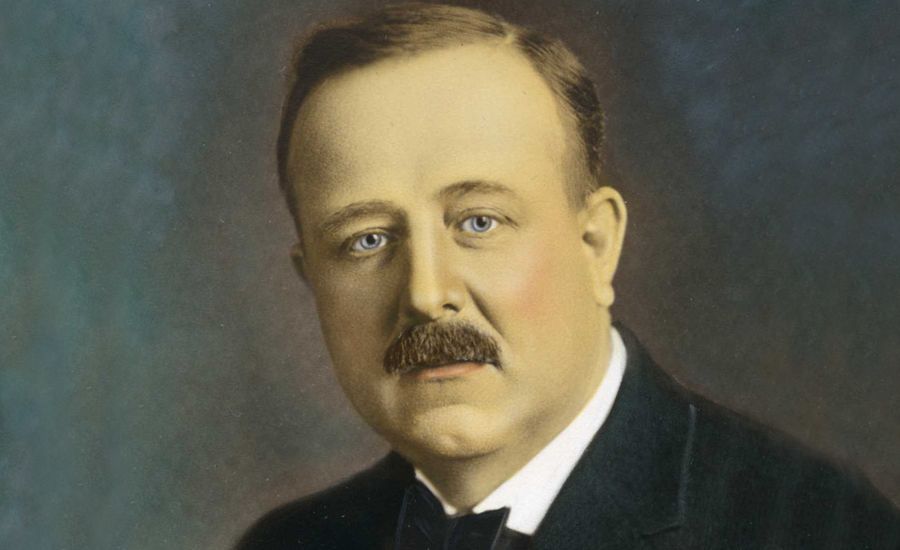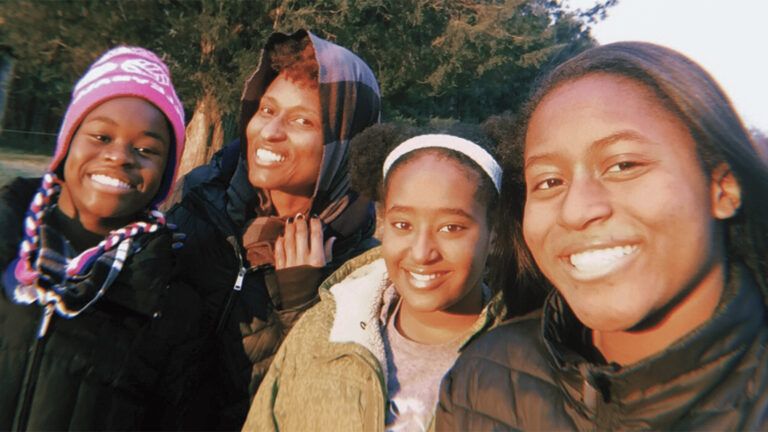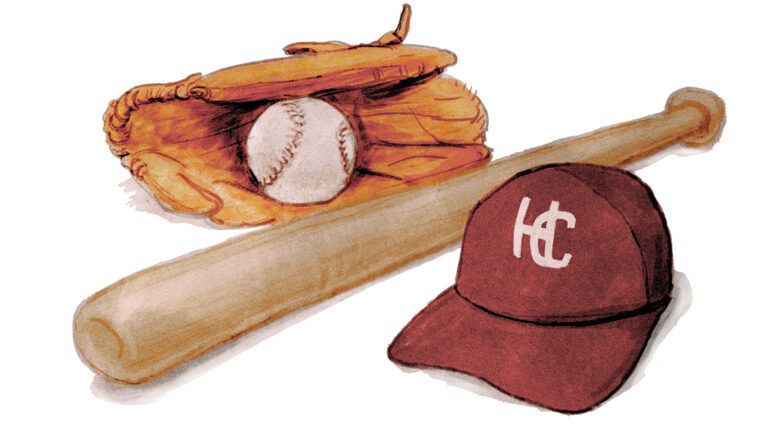Norman Vincent Peale touched millions of lives with his inspiring message of hope and faith; in turn, Dr. Peale was influenced by his father, a man of courage, conviction, and compassion. Here are six of Dr. Peale’s fondest memories of the Reverend Dr. Charles Clifford Peale.
* * *
Keep It Simple
My father was one of those men who had ideas that were old-fashioned, but nevertheless right up to date. He was full of wisdom. Some of his statements were too old-fashioned to be understood by his generation. He lived much in agricultural communities and many of his allusions were agricultural and had to do with horses and buggies and all that sort of thing. But there are certain ideas that are timeless.
I remember one time I was telling my father about something I wanted to accomplish and he asked, “Just what is it you want to do?” And I started giving him a long speech and he said, “You weary me. You have talked for ten minutes and I haven’t the slightest idea what you want to accomplish. What do you want to accomplish? Put it down in one word on a piece of paper.”
Well, I had a hard time putting it down in one word, but I finally got it down. Then things began to happen—when I had got it down to one word. My father used to say, “You must know what you want to accomplish. Then you ask the Lord to help you. Then, if you have some faith, and if you work your head off, you will bring it to pass.”
GET THESE BOOKS FOR THE FATHERS YOU LOVE
Once he gave me the illustration of when he first met my mother. He had been away from his home town, a little town in southern Ohio, for a number of years attending college and medical school. My father was a doctor before he became a minister. Finally he got back home on a vacation. My grandfather—his father—ran a general store where he sold everything from coffee to reapers, one of the typical rural general stores. “Peale Brothers” it was called.
My father, coming back from the city, was well dressed—had a city hat, you know, and that sort of thing. One day, as he was standing by the front window of the store, he looked down the street and saw this vision of loveliness—a beautiful girl with lovely complexion, blue eyes and golden hair, walking along with the graceful carriage which was to characterize her even as an older lady.
My father had never seen this girl before. He didn’t know who she was. He turned to my grandfather and addressed him as “Pa.” In those days a person’s father was called Pa. After they started calling him Dad. Now it has degenerated to Pop. But in those days it was Pa. My father turned and said, “Pa, see that girl?” Pa said, yes he saw her. My father said, “I don’t know who she is, but I am going to marry that girl before the year is out.”
Sometimes we don’t think of our parents as being romantic, but if they hadn’t been romantic we might not be here. When my mother-to-be later heard of what young Peale had said she told him, “Don’t think you are so smart that you can get me that easily.” But in October he did marry her.
They lived together for nearly fifty years and the day she left us was, I know, the saddest day in my father’s life. He had loved her from the minute he saw her on that street. He told us, “I saw her in the center of my future and I put it up to God and I got her.”
* * *
A Life Reclaimed
When I was a very young boy my father was a preacher in Ohio, and in those days, in the wintertime when the farmers had little else to do, the little village and country churches used to have revival meetings that would go on for two weeks, three weeks, maybe even a month. Sometimes they would bring in a visiting evangelist, but more often the local preacher would preach every night.
And the preachers weren’t fooling around. They weren’t discussing ethical refinements; they weren’t discussing the international situation. They were trying to burrow into human lives, reach individuals, change them from wicked people into good people and get them to commit themselves to Jesus Christ. It was just that simple and uncomplicated.
My father was the kind of preacher who, as they say now, laid it on the line. He talked in plain United States English, with none of the pious loftiness that sometimes gets into the pulpit. It was plain, straight talk. He really used to lay it on the line. My mother, a gentle soul, used to remonstrate with him afterwards at Sunday dinner, “Clifford, why don’t you be a little more polite in the way you talk?”
But he would say, “I’m not impolite. I want them to know what I mean.”
In our community there was a man by the name of Dave who was known all up and down that countryside as one of the meanest and most vicious of men. He was an enormous fellow, tall, broad, and he had a hand like a great sledge hammer. Also he had a terrible temper. If anybody crossed him he was likely to knock the man down and nearly kill him. He was a heavy drinker, he was dishonest and he was foul-mouthed.
Yet he was potentially a good man underneath all this. And each time they had these revival meetings he would come around. People used to laugh about it, saying, “Old Dave goes and gets converted and he stays converted for about a week and then he’s off again.” But it wasn’t funny. Dave was struggling for something. He couldn’t quite get through to it, but he wanted it.
Well, I was sitting in the second pew one night just a small boy when my father was preaching and gave the invitation to come forward and kneel at the altar. And here came old Dave. The floor shook when he walked. He came and knelt at the altar. And my father came down to pray with him.
My father and Dave were chips from the same block in this respect: they were both strong men. They were he-men, both of them. And this time my father said, “Dave, I’m not going to let you go this time until you come all the way. Jesus Christ can change you right now.” And he prayed with him.
Then after a few minutes Dave got up (I can see it to this day) and turned and faced the congregation and said, “Praise God! He has done it now!” And his face was beautiful to behold.
Dave lived for many more years in that same community and came to be known far and wide as a saint. When he grew old his hair was white and his face looked like a granite cliff, but a granite cliff against which the sun was shining. He was a marvelous man.
When I heard that he was on his deathbed, I made a special trip to Salina, Ohio, to see him. I stood by his bed and looked into his blue eyes shining against the white pillow and I asked, “Dave, do you remember my father and mother?”
“I’ll meet them,” he said.
I looked at his frail white blue-veined hand and I asked, “Dave, will you please put your hand on my head and bless me?” And I’ll never forget the prayer that old man offered for me.
10 Things to Know about Norman Vincent Peale
* * *
Doing Unto Othersbr />One Christmas Eve when I was very young, I was out with my father doing some late Christmas shopping in our home town of Cincinnati. My father had as big a heart of love as any man I ever knew. It made no difference who a person was, he loved and talked with them all. And he was a happy man.
On this occasion I was loaded down with packages and thinking how good it would be to get home when a bleary-eyed, dirty old man came up to me, touched my hand with his and asked for money. Impatiently I brushed him aside.
“You shouldn’t treat a man that way, Norman,” said my father as soon as we were out of earshot.
“Dad, he’s nothing but a bum.”
“Bum?” he said. “There is no such thing as a bum, my boy. Maybe he hasn’t made the most of himself but he is a child of God, nonetheless. We must always look upon a man with esteem. Now, I want you to go and give him this.”
My father handed me a dollar. “Now do exactly the way I tell you. Go up to him, hand him this dollar and speak to him with respect. Tell him you are giving him this dollar in the name of Christ.”
“Oh, I don’t want to say that.”
“Go and do as I tell you.”
So I ran after the old man, caught up with him and said, “Excuse me, sir. I give you this dollar in the name of Christ.”
The old man looked at me in absolute surprise. Then a wonderful smile spread over his face. A smile that made me forget he was dirty and unshaven. His essential nobility came out. Graciously, with a sort of bow, he said, “I thank you, young sir, in the name of Christ.”
Suddenly I was happy, deeply happy. The very street seemed beautiful. In fact, I believe that in the moment I held that man in full and complete esteem, I came very close to Christ Himself. And that is one of the most joyful experiences any person can have.
* * *
Making Something of Myself
I was a boy of 12 in 1910, and we were living then in the Norwood section of Cincinnati, where some citizens were swept into a fright by the fireball that was Halley’s Comet. I’m glad to say, though, that no such fear buffeted the Peale household, and I have my father to thank.
My father, the Reverend Doctor Charles Clifford Peale, welcomed the coming of Halley’s Comet. He was an avid reader of astronomy and knew this comet wasn’t a burst of celestial chaos. Far from it. To him, its predictable return was vivid proof of divine order.
My father, mother, brother Bob and I did our comet-watching on a pleasant evening in May 1910. We went down the steps of our home and into Spencer Avenue, now dark and quiet. Our neighbors were also out, talking softly under the elms, and among them may have been a few ballplayers from the Cincinnati Reds. The club’s treasurer, Mr. Bancroft, lived next door to us, and Reds players often came to pay respectful visits to his pretty daughter, June.
Soon, right above our house, the sky brightened. And then there it was, the famous comet, so clear and distinct, so incredibly fast and yet perfectly silent. The blazing orb and its glowing tail.
We were all in awe, speechless, except for my father, who was always ready to turn any event into a spiritual lesson. “God is the greatest scientist Who ever lived,” he said. “Seventy-five point six years from now that comet will come right back to where you see it at this moment.”
To my father the comet told time on a scale that only God could command. Trillions upon trillions of miles this comet would travel in the coming decades, and yet still it would return in 1985 at its divinely appointed hour.
“Seventy-five years,” I said, mulling over my father’s words. “What do you know. Do you suppose, Dad, that I’ll be here when the comet comes back?”
To this my father replied, “That isn’t important, Norman. What’s important is that you amount to something before it comes back.”
These words, ringing with wisdom, were illuminated by the heavens, and I’ve spent 75 years trying to heed them.
* * *
Love and Forgiveness
My father was a physician in his early life. At one time he was health commissioner for the city of Milwaukee. Later, he became a preacher, and he always carried in his ministry the two elements of medicine and the Gospel. He felt that the two together had the power to heal.
He was a man who loved everybody. You might find him sitting on a doorstep with a man commonly referred to as a bum, but nobody was a bum to my father. Everyone was a child of God. He had a heart full of love.
One night—it was near Christmas and the streets were decorated with Christmas trees and there was the sound of carols—my father received a call very late from what was referred to in those days as a house of ill repute to come to minister to a young woman who was at death’s door. My father took me with him.
“Norman, you may learn something,” he said. “I don’t want you shielded. I want you to know that there is a lot of sin, wickedness and despair in human life. And the sooner you get acquainted with it, the better.” We were ushered into a bedroom, and there lay this girl, white as chalk. I can remember yet the hacking coughs which came from her thin, emaciated little body.
Her lily white arms, with frail little hands, almost like a child’s hands, lay on the coverlet. She had tuberculosis, probably, or some disease which now might yield to antibiotics; but she was at death’s door. My father knew the signs, and he said aside to me. “This girl hasn’t long on this earth.”
She took hold of my father’s hand. He had a big, kindly hand. He put his other hand on hers. She said to him, “Dr. Peale, my mother was a good Christian and so was my father. We were brought up in a Christian home. What was there in me, doctor, which made me take this road? I hate it. I’m a bad girl. There is no good in me. Oh, what will I do? I know I’m going to die.”
I sat there listening. I didn’t know what to say. Would you? But my father did. He said to her, “Listen, honey, there is no such thing as a bad girl. Sometimes there are good girls who act badly, but there are no bad girls—nor bad boys either—because God made them. He makes all things good. Do you believe in Jesus?”
She said that she did. My father continued, “Just tell me. Let me hear you say: ‘Dear Jesus, forgive me for my sins.'” She repeated those words. “Now,” he said, “God loves you, His child who has strayed, and He has forgiven you. Now you must forgive yourself. Your soul is now pure, and He will take you to your heavenly home.”
That night I first saw the glory, power and wonderment of the ministry, the ineffable privilege of being helpful to another human soul. More than that, I saw on my father’s face and in that poor little girl’s face the love of God. The women standing near had tears on their cheeks. There was beauty in that place of evil; the law of Bethlehem, of the Saviour, was showing itself on a dark and dismal street in Cincinnati, Ohio. Jesus walked those streets.
“Behold, I bring you good tidings…unto you is born this day…a Saviour, which is Christ the Lord.” Everybody needs love. Young people need love to be nurtured well and mature. Older people need love. There is an eternal kindness to offset the harsh vicissitudes of human existence. Whittier terms it “the everlasting mercy.” This is what Christmas teaches us: love.
* * *
A Comforting Final Visit
My father, who died at 85 after a distinguished career as a physician and minister, had struggled against a very real fear of death. But after his funeral, my stepmother dreamed that he came to her and said, “Don’t ever worry about dying. There’s nothing to it!” The dream was so vivid that she woke up, astounded. And I believe that he did come to reassure her, because that is precisely the phrase I had heard him use a thousand times to dismiss something as unimportant.
Years before, when news reached me that my mother had died, I was alone in my office, numb with grief. There was a Bible on my desk, and I put my hand on it, staring blindly out the window. As I did so, I felt a pair of hands touch my head, gently, lovingly, unmistakably. Was it an illusion? A hallucination? I don’t think so. I think my mother was permitted to reach across the gulf of death to touch and reassure me.
Once when I was preaching at a big church convocation in Georgia, I had the most startling experience of all. At the end, the presiding bishop asked all the ministers in the audience to come forward and sing a hymn.
Watching them come down the aisles, I suddenly saw my father among them. I saw him as plainly as when he was alive. He seemed about 40, vital and handsome, singing with the others. When he smiled at me and put up his hand in an old familiar gesture, for several unforgettable seconds it was as if my father and I were alone in that big auditorium. Then he was gone. But he was there, and I know that someday, somewhere I’ll meet him again.
Did you enjoy this story? Subscribe to Guideposts magazine.
* * *





